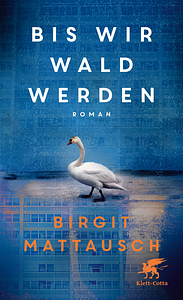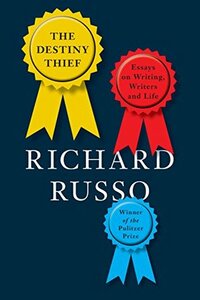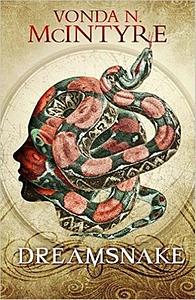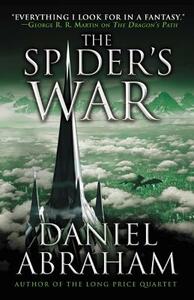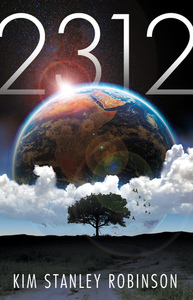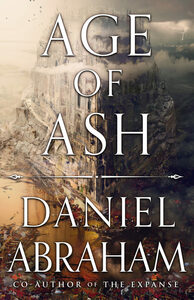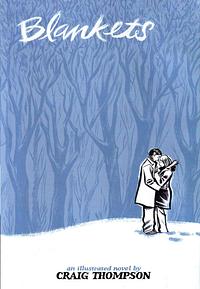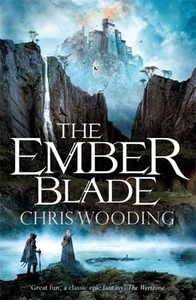You need to sign in or sign up before continuing.
Take a photo of a barcode or cover
explikator's Reviews (76)
emotional
hopeful
inspiring
lighthearted
reflective
slow-paced
Plot or Character Driven:
Character
Strong character development:
Yes
Loveable characters:
Yes
Diverse cast of characters:
Yes
Flaws of characters a main focus:
No
emotional
funny
informative
lighthearted
slow-paced
emotional
hopeful
inspiring
lighthearted
fast-paced
Plot or Character Driven:
Character
Strong character development:
Yes
Loveable characters:
Yes
Diverse cast of characters:
No
This is a nice book. It's about a young man full of self regret, without knowing it, and a big retro toy robot with top notch artificial intelligence. A kind of feel good buddy movie-book. It's full of warm and cozy scenes, some hilarious and some awkward. Nice read. But, to be honest, not much more.
I've got the impression that there's a heavy influence of at least one editor in this script. Sometimes there's a slight slip in the voice, which irritated me a little. My guess is that the first draft lead the author to no conclusion, then a happy ending was constructed and its threads reneedled in the structure.
I've got the impression that there's a heavy influence of at least one editor in this script. Sometimes there's a slight slip in the voice, which irritated me a little. My guess is that the first draft lead the author to no conclusion, then a happy ending was constructed and its threads reneedled in the structure.
adventurous
hopeful
inspiring
mysterious
reflective
tense
fast-paced
Plot or Character Driven:
Character
Strong character development:
Yes
Loveable characters:
Yes
Diverse cast of characters:
Yes
Flaws of characters a main focus:
No
„Dreamsnake“ was first published in 1978 and won the Nebula and the Hugo in its time. It was praised for its fresh feminist approach to the dystopian genre. In many ways it reads like a feminist version of „A boy and his dog“. (Harlan Ellison, 1969).
Though Vonda N. McIntyre is the less experienced writer, her story of ‚Snake‘ and her snakes is less aged and more optimistic. McIntyre conducts interesting experiments in „Dreamsnake“. For example there’s one character whose gender is not revealed, because ‚it‘ is described without using gender pronouns at all.
‚Snake‘, the main protagonist, is a strong, self-sufficient woman, who knows about her flaws and is not intimated by the obstacles McIntyre throws at her. The classical love story is reversed, as Snake’s lover, Arevin, has to follow her and clearly is more dependent on her affection than vice versa. But: Though ‚love‘ is described as something that’s not worth depending on, it kinda wins at the end.
„Dreamsnake“ is worth a read, only 230 pages, but its storytelling and its rhythm may make it difficult for modern readers sometimes. „Snake“ is one of the new female heroines that appeared in the late 70ies – Sigorney Weaver (‚Alien‘, 1979) would be a good cast. Without books like „Dreamsnake“ the modern wave of feminism would not have taken place.
Why does Snake not inject the genetically modified venom directly? Why has a real f**king snake to bite you? Apart from this, the showdown at the end of the story came out of nothing for me. The great conflict – how can Snake confront her teachers – is not a topic at the end. Instead we find a UFO-ex-machina which solves the problem after Snake and Melissa get tortured enough to earn their reward. That and the sudden end of the book disturbed me.
Though Vonda N. McIntyre is the less experienced writer, her story of ‚Snake‘ and her snakes is less aged and more optimistic. McIntyre conducts interesting experiments in „Dreamsnake“. For example there’s one character whose gender is not revealed, because ‚it‘ is described without using gender pronouns at all.
‚Snake‘, the main protagonist, is a strong, self-sufficient woman, who knows about her flaws and is not intimated by the obstacles McIntyre throws at her. The classical love story is reversed, as Snake’s lover, Arevin, has to follow her and clearly is more dependent on her affection than vice versa. But: Though ‚love‘ is described as something that’s not worth depending on, it kinda wins at the end.
„Dreamsnake“ is worth a read, only 230 pages, but its storytelling and its rhythm may make it difficult for modern readers sometimes. „Snake“ is one of the new female heroines that appeared in the late 70ies – Sigorney Weaver (‚Alien‘, 1979) would be a good cast. Without books like „Dreamsnake“ the modern wave of feminism would not have taken place.
adventurous
emotional
hopeful
lighthearted
reflective
sad
slow-paced
Plot or Character Driven:
Character
Strong character development:
Yes
Loveable characters:
Yes
Diverse cast of characters:
Complicated
Flaws of characters a main focus:
Yes
2500 pages later "Coin and Dagger" concludes with a logical, emotional and satisfying ending. It was perfectly plotted and is worlds away from your standard fantasy lore. Why is this series so little known? I'd rate this work over anything I've read from Robin Hobb or Brandon Sanderson.
The first book is the weakest link in the chain, the last one is the best. Abraham starts as a pupil to George R.R. Martin, but develops his own style throughout the series.
For anyone who wants Fantasy to use its potential, you're at the right place - things are different in Altea. Yes, you have twelve humanoid races, but only three or four are relevant. Yes, you have a dragon, but this one is of a special kind. There's war, but no too bloody battle scenes, there's love, but no awkward sex scenes and there's - as main ingredient - character development.
But: There's almost no magic, no demonical villain, no Chosen One and no legendary heroes. Instead we grow with the protagonists and watch - especially with Cithrin and Geder - the most complex character arcs in Fantasy that I've read for a very long time.
Abraham writes very convincing dialogue and monologue. He holds his rhythm throughout the series - something a "gardener" like Mr. Martin could never achieve. Especially in "The Spider's War" there's poetic wisdom in the things we witness in the interactions of the protagonists with themselves and a rapidly changing world.
That said I felt like things could be better described and explained. There's no magic in this universe and there's no magic in the words used to present it to us. It feels like this world was created with even bigger concepts in mind, until Abraham had the idea to the "Coin"-part of the books.
Though, if you have the time for a long journey and the patience for a slow beginning, "Coin and Dagger" is worth a try. Or you start your Abraham with "Age of Ash", which is written more artfully and elegant as the "Coin and Dagger", but which only is starting its trajectory right now.
The first book is the weakest link in the chain, the last one is the best. Abraham starts as a pupil to George R.R. Martin, but develops his own style throughout the series.
For anyone who wants Fantasy to use its potential, you're at the right place - things are different in Altea. Yes, you have twelve humanoid races, but only three or four are relevant. Yes, you have a dragon, but this one is of a special kind. There's war, but no too bloody battle scenes, there's love, but no awkward sex scenes and there's - as main ingredient - character development.
But: There's almost no magic, no demonical villain, no Chosen One and no legendary heroes. Instead we grow with the protagonists and watch - especially with Cithrin and Geder - the most complex character arcs in Fantasy that I've read for a very long time.
Abraham writes very convincing dialogue and monologue. He holds his rhythm throughout the series - something a "gardener" like Mr. Martin could never achieve. Especially in "The Spider's War" there's poetic wisdom in the things we witness in the interactions of the protagonists with themselves and a rapidly changing world.
That said I felt like things could be better described and explained. There's no magic in this universe and there's no magic in the words used to present it to us. It feels like this world was created with even bigger concepts in mind, until Abraham had the idea to the "Coin"-part of the books.
Though, if you have the time for a long journey and the patience for a slow beginning, "Coin and Dagger" is worth a try. Or you start your Abraham with "Age of Ash", which is written more artfully and elegant as the "Coin and Dagger", but which only is starting its trajectory right now.
adventurous
informative
mysterious
reflective
slow-paced
Plot or Character Driven:
Character
Strong character development:
No
Loveable characters:
No
Diverse cast of characters:
Yes
Flaws of characters a main focus:
No
After the Mars trilogy I tried „2312“ to have a little hardcore sci fi experience again. And I was not dissappointed at all. Sci Fi is always a little stronger on the information side as, let’s say, crime novels and that’s exactly the case with „2312“.
In fact, there’s so much information in this one that you have to be really patient with the little part „plot“ plays in this story. There’s not very much. Enough story for a Ray Bradbury short story, speaking in Sci Fi terms.
Humans have developed into subspecies as soon as they settled on the planets and moons of the solar system. And they are gender fluid in the extreme. This may be disturbing for some, expecially the sex scene, but it’s a refreshening idea in my opinion
In fact, there’s so much information in this one that you have to be really patient with the little part „plot“ plays in this story. There’s not very much. Enough story for a Ray Bradbury short story, speaking in Sci Fi terms.
adventurous
mysterious
slow-paced
Plot or Character Driven:
Character
Strong character development:
Yes
Loveable characters:
Yes
Diverse cast of characters:
No
Flaws of characters a main focus:
Yes
„Age of Ash“ is an example of succesfull world building, which is something like the super power of the Fantasy genre. The city of Kithamar comes to life in Daniel Abraham’s work and you can feel that he spent a lot of time in the skin of his protagonists.
It’s the start of a new trilogy and it may be a slow start for some readers. Because he shows us the world through the narrow perspectives of his two main characters, it takes a lot of time until you can see the bigger picture.
A very good read for patient readers who don’t need battles, orks and gods in their Fantasy world. I’m looking forward to the next two books and expect a payout for my invested time.
I especially liked the fact that the showdown in „Age of Ash“ is about a heist to steal a dagger. No universes safed in this one, two girls simply survive the blender they are thrown into. That’s different.
It’s the start of a new trilogy and it may be a slow start for some readers. Because he shows us the world through the narrow perspectives of his two main characters, it takes a lot of time until you can see the bigger picture.
A very good read for patient readers who don’t need battles, orks and gods in their Fantasy world. I’m looking forward to the next two books and expect a payout for my invested time.
emotional
hopeful
inspiring
lighthearted
medium-paced
adventurous
medium-paced
Plot or Character Driven:
Plot
Strong character development:
Yes
Loveable characters:
No
Diverse cast of characters:
Complicated
Flaws of characters a main focus:
No
A 800 page High Fantasy epic, just as they used to be, long ago, when Elves and Dwarves and Trolls ruled over our planet? To get lost into a strange, new world where heat is produced by firestone and kindle and not by the climate crisis - wouldn't that be worth your time?
"The Ember Blade" promises exactly this and partly it delivers, too. 1) This book is 800 pages long. 2) It tells the good ole "Chosen One" trope anew. 3) It doesn't tire to tell you that it's situated on another planet: "Two moons! Take this, Middle Earth!" 4) There seem to be other typical Fantasy races, but ... we don't meet them. At least not in this part of the trilogy.
That said: It was an entertaining read, even though sometimes LOTR shone through too bright. I really didn't care too much about Aren, even less for Cade and Grub was just a very stereotypical barbarian. The female characters had the following roles to play: Unreachable upper-class idol. Hyper-intelligent, but very angry mastermind. Tough, but neurotic girl, which is thankful for the heroes attention.
Two characters were interesting: Vika, the druidess and Klyssen, the bad guy. Vika is confronted with the fact that her special brand of wisdom is eradicated from the world and Klyssen, the torturer, loves his children and his grumpy cat. There's something.
"The Ember Blade" is written very professionally and it flows nicely. The changing POVs are not jarring and flashbacks are short and useful. It is structured like a trilogy in itself (like LOTR!), consisting of an escape story, and adventurous travel with unlikely companions and a heist at the end. I will pick up the next series of books once Chris Wooding has told this trilogy.
"The Ember Blade" promises exactly this and partly it delivers, too. 1) This book is 800 pages long. 2) It tells the good ole "Chosen One" trope anew. 3) It doesn't tire to tell you that it's situated on another planet: "Two moons! Take this, Middle Earth!" 4) There seem to be other typical Fantasy races, but ... we don't meet them. At least not in this part of the trilogy.
Two characters were interesting: Vika, the druidess and Klyssen, the bad guy. Vika is confronted with the fact that her special brand of wisdom is eradicated from the world and Klyssen, the torturer, loves his children and his grumpy cat. There's something.
"The Ember Blade" is written very professionally and it flows nicely. The changing POVs are not jarring and flashbacks are short and useful. It is structured like a trilogy in itself (like LOTR!), consisting of an escape story, and adventurous travel with unlikely companions and a heist at the end. I will pick up the next series of books once Chris Wooding has told this trilogy.
adventurous
mysterious
medium-paced
Plot or Character Driven:
Character
Strong character development:
Yes
Loveable characters:
Yes
Diverse cast of characters:
Yes
Flaws of characters a main focus:
No
Let's say this book is classical High Fantasy. We got the Hero's Journey with all the needed elements. The used archetypes here: The wise mentor, the Animus, the Shadow and that Santha, the heroin, has to solve the conflict inside herself, too. "Use the Force, Santha!"
I like the telepathic dog-fox and the fact that there's not an evil villain, just the usual impending doom. That said: The story fluidly told and a very entertaining read. I was happy to be back in Fantasy again and afterwwards immediately searched for a Tolkien clone I haven't read yet .
More than solid work above average Fantasy and I hope Benjamin Ryan invests a little more time in my favourite genre in the near future.
There's one thing that unsettles me a bit. It's a proper ending to the book when Santha looses her ego in the Gate. But the epilogue brings her back instantly, I guess for book number two. Mr. Ryan, don't write book two, please! Tell a new story! Please!
I like the telepathic dog-fox and the fact that there's not an evil villain, just the usual impending doom. That said: The story fluidly told and a very entertaining read. I was happy to be back in Fantasy again and afterwwards immediately searched for a Tolkien clone I haven't read yet .
More than solid work above average Fantasy and I hope Benjamin Ryan invests a little more time in my favourite genre in the near future.
